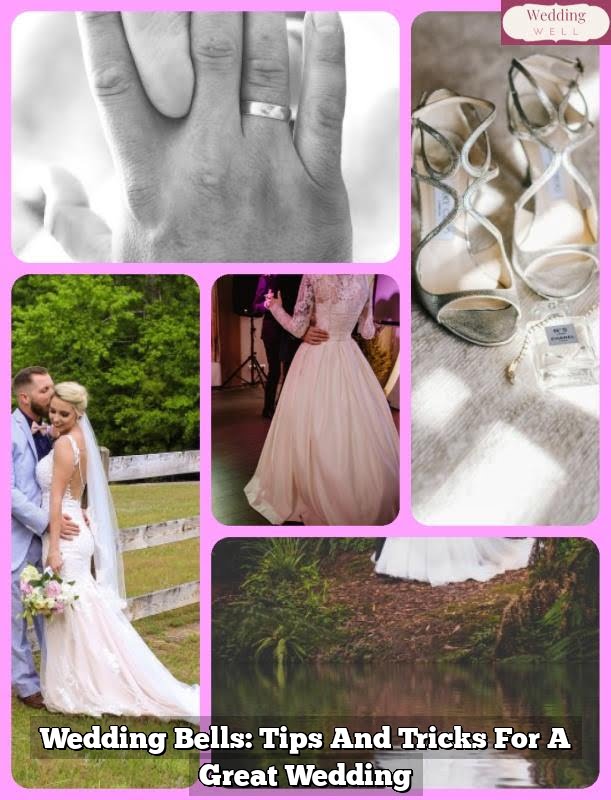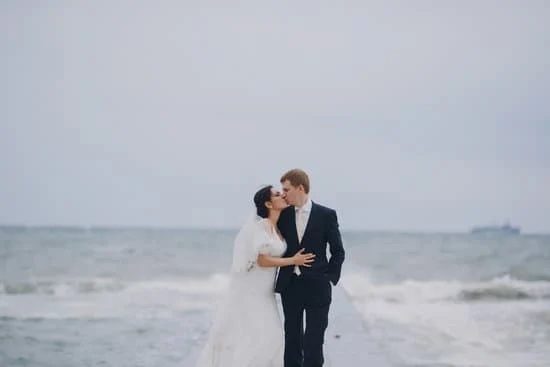What is a wedding? The answer to this question goes beyond the simple union of two individuals. Weddings are deeply rooted in history, tradition, and culture, carrying significant symbolism and meaning. In this article, we will explore the various aspects of weddings, from their historical origins to modern practices, the significance of wedding rituals and traditions, different types of wedding ceremonies around the world, and the legal and cultural aspects of marriage.
Weddings have been celebrated for centuries, with ancient traditions shaping the modern-day practices we observe today. From elaborate ceremonies to more intimate gatherings, weddings hold a special place in society as a symbol of love and commitment. The evolution of wedding customs and trends reflects the changing values and norms within different cultures.
Throughout this article, we will delve into the emotional and psychological impact of weddings on couples and families, as well as the intricate planning process involved in creating a memorable event. Whether it’s selecting a venue or crafting heartfelt vows and speeches, each aspect contributes to the beauty and complexity of this cherished institution. Join us on this journey as we unravel the true essence of what a wedding means in our lives.
The History of Weddings
Ancient Wedding Traditions
Throughout history, weddings have been accompanied by diverse customs and rituals that varied across different cultures. In ancient Greece, for example, weddings were considered a sacred bond between two individuals, often involving religious ceremonies and feasting. Similarly, in ancient Rome, weddings were marked by elaborate rituals such as the exchange of vows and the breaking of bread to symbolize unity.
Medieval Weddings
During medieval times, wedding ceremonies were deeply rooted in religious beliefs and traditions. The notion of marriage as a sacrament became prominent within Christian societies, leading to the development of specific rituals such as exchanging rings and receiving blessings from clergy members. These ceremonies often took place in churches or other sacred settings, emphasizing the spiritual importance of marriage.
Modern Wedding Practices
In contemporary times, weddings have evolved to reflect changing social norms and cultural influences. While some traditional customs continue to be upheld, modern couples often personalize their ceremonies to align with their individual beliefs and values. From destination weddings to unconventional venues, there is a growing trend towards creating unique experiences that resonate with the couple’s identity.
By examining the historical trajectory of weddings from ancient civilizations to present-day practices, we can gain a deeper understanding of how this institution has transformed over time while still retaining its core significance.
The Symbolism of Wedding Rituals and Traditions
Weddings are significant life events that mark the union of two individuals in love, but they are also steeped in symbolism and tradition. From the exchange of rings to the lighting of unity candles, every aspect of a wedding ceremony holds deep meaning and represents different values and beliefs. The symbolism behind wedding rituals and traditions varies across cultures and religions, but they all share a common thread of uniting two people in marriage.
One of the most universal symbols in weddings is the exchange of rings. The circular shape of the ring represents eternity and unending love, while the act of exchanging rings symbolizes the couple’s commitment to each other.
Another common ritual is the lighting of a unity candle, where the bride and groom each light a candle together to signify their individual lives coming together as one. These rituals are not only beautiful gestures, but they also serve as powerful symbols of love, unity, and commitment.
Different cultures around the world have their own unique wedding rituals and traditions that are rich in symbolism. For example, in Hindu weddings, the tying of the mangalsutra (sacred necklace) around the bride’s neck symbolizes her marital status and signifies her husband’s promise to take care of her.
In Chinese weddings, the tea ceremony symbolizes respect for elders and represents the union of two families. Understanding these symbols adds depth and meaning to what is a wedding beyond just being a celebration.
In addition to specific rituals, there are also various symbolic elements that are commonly incorporated into wedding ceremonies. From flowers that represent beauty and fertility to colors that symbolize purity or passion, every detail in a wedding carries its own significance. It is this richness of symbolism that makes weddings not just joyous occasions but also profound expressions of love, culture, and tradition.
| Symbolic Element | Meaning |
|---|---|
| Rings | Represents eternity and unending love |
| Unity Candle | Signifies unity and commitment |
| Mangalsutra (Hindu Weddings) | Sacred necklace representing marital status |
| Tea Ceremony (Chinese Weddings) | Symbolizes respect for elders; unites two families |
Types of Wedding Ceremonies Around the World
Weddings are a universal celebration of love and commitment, but the rituals and traditions associated with them vary widely across different cultures. From elaborate traditional ceremonies to modern civil unions, the types of wedding ceremonies around the world showcase the diversity and richness of human customs.
In many Western cultures, the classic white wedding is a popular choice, featuring a church ceremony followed by a reception. However, in other parts of the world, such as India, a traditional Hindu wedding may last several days and include vibrant colors, intricate rituals, and lively music and dancing. Similarly, in Japan, Shinto weddings are marked by their serene simplicity and the symbolic use of sake.
Other cultures also have unique customs that are deeply intertwined with their religious or spiritual beliefs. For example, in some African societies, traditional tribal weddings involve ceremonial dances and special rites performed by elders. In contrast, marriage ceremonies in Middle Eastern countries often adhere to Islamic traditions and can include practices like signing a marriage contract or performing a henna ceremony.
Despite these differences, one common thread unites all types of wedding ceremonies around the world: they are joyous occasions that bring together family and friends to witness and celebrate the union of two individuals. The diverse ways in which love is celebrated through marriage reflect the beauty of cultural diversity while highlighting the universal power of love and commitment.
Overall, what is a wedding varies greatly depending on where you are in the world. And while each culture may have its own unique customs and traditions related to marriage, they all share a common purpose: to honor love and create lasting memories for couples embarking on this lifelong journey together.
The Legal and Cultural Aspects of Marriage
Legal Requirements for Marriage
In many countries, marriage is not only a cultural or religious ceremony, but also a legally binding contract between two individuals. The legal requirements for getting married can vary widely from one country to another.
This may include obtaining a marriage license, meeting age requirements, undergoing pre-marital counseling, and complying with other specific regulations mandated by local or national laws. Understanding these legal requirements is essential for couples planning to tie the knot, as failure to adhere to these regulations could result in an invalid marriage.
Cultural Customs and Traditions
Beyond the legal framework, weddings are steeped in rich cultural customs and traditions that reflect the values and beliefs of different communities. These customs often involve elaborate ceremonies, symbolic rituals, and festive celebrations that mark the union of two individuals.
From traditional tea ceremonies in East Asia to song and dance rituals in African cultures, each wedding tradition showcases the unique heritage of a particular society. Exploring these cultural customs provides invaluable insights into the diversity of wedding practices around the world.
The Impact on Family Dynamics
Marriage is not only a commitment between two people; it also has broader implications for family dynamics and social relationships. In many cultures, weddings are not just about uniting two individuals-they symbolize the merging of families and communities. As such, weddings can have a profound impact on familial ties, social structures, and dynamics within extended networks. Understanding how marriages influence familial relationships sheds light on how this institution intersects with broader societal norms and values.
The Evolution of Wedding Customs and Trends
Wedding customs and trends have evolved significantly over time, reflecting changes in societal norms, cultural influences, and individual preferences. From ancient traditions to modern practices, weddings have undergone a transformation that speaks to the shifting values and beliefs of different communities around the world.
One of the most noticeable evolutions in wedding customs is the shift towards personalization and individual expression. Couples today are opting for unique themes, personalized decor, and customized ceremonies that reflect their personalities and relationship. This trend has given rise to a more inclusive approach to weddings, where couples are incorporating elements from different cultural backgrounds or creating new traditions altogether.
Another significant evolution in wedding customs is the changing roles and expectations of the bridal party. Instead of adhering strictly to traditional gender roles, many couples are choosing to have mixed-gender bridal parties or forgoing them altogether. This move towards inclusivity and breaking gender stereotypes has become increasingly common in modern weddings.
Furthermore, advances in technology have also influenced wedding customs and trends. Social media platforms and wedding websites now play a crucial role in sharing the couple’s love story, announcing their engagement, and providing details about their big day. This digital evolution has not only impacted how weddings are planned but also how they are experienced by guests.
- The rise of destination weddings
- Sustainable and eco-friendly wedding practices
- Incorporation of technology in wedding planning (wedding apps, virtual guest books)
Wedding Planning
When it comes to planning a wedding, there are many important decisions that need to be made, from choosing the perfect venue to writing heartfelt vows and speeches. One of the first steps in the wedding planning process is selecting a venue. Whether it’s a rustic outdoor setting, a grand ballroom, or a destination beach, the venue sets the tone for the entire event. Couples often consider factors such as location, capacity, and amenities when making this decision.
Once the venue is secured, couples begin to work on crafting their vows and speeches. This is an opportunity for them to express their love and commitment to each other in a personal and meaningful way. Some couples choose to write their own vows, while others opt for traditional ones. Likewise, speeches given by family members and friends can add a special touch to the ceremony and reception.
In addition to these key elements of wedding planning, there are other details that require attention such as selecting a caterer, choosing floral arrangements, and deciding on music options. Each of these aspects contributes to creating a memorable and beautiful celebration of love.
| Aspect of Wedding Planning | Description |
|---|---|
| Venue Selection | The choice of venue sets the tone for the entire event |
| Vows and Speeches | Couples craft their vows as an expression of their love; speeches from family members can add meaning |
| Other Details | Catering selection, floral arrangements, music choices all contribute to a beautiful celebration |
The Emotional and Psychological Impact of Weddings on Couples and Families
When couples decide to get married, they are not only making a commitment to each other but also to their families and loved ones. The emotional and psychological impact of weddings on couples and families can be profound, as it involves a range of feelings and adjustments. Here are some ways in which weddings can affect the emotions and psychology of those involved:
1. Increased Stress Levels: Wedding planning can be incredibly stressful for both the couple and their families. From selecting a venue to coordinating with vendors, there are numerous details to manage, which can lead to heightened stress levels for everyone involved.
2. Heightened Emotions: Weddings are often filled with intense emotions, from joy and excitement to anxiety and nervousness. The act of committing to spending the rest of your life with someone can evoke a wide range of feelings, not only for the couple but for their families as well.
3. Strengthening Relationships: Despite the challenges that come with wedding planning, many couples find that the experience brings them closer together. Similarly, families often come together to support the couple during this significant time in their lives.
Ultimately, weddings have a profound emotional and psychological impact on couples and their families. It is important for everyone involved to recognize these effects and provide support for one another throughout the process.
Conclusion
In conclusion, the institution of marriage is a complex and beautiful tradition that holds deep cultural, emotional, and legal significance. From its ancient roots to modern-day practices, weddings have been a symbol of love, commitment, and union across different cultures and societies. The history of weddings reveals how these rituals have evolved over time, reflecting changes in social norms and values.
The emotional and psychological impact of weddings on couples and families cannot be understated. The joy and celebration that come with uniting two individuals are often accompanied by feelings of nervousness, excitement, and even anxiety. Nevertheless, the wedding ceremony serves as a powerful bond that solidifies the commitment made between partners.
Moreover, the legal and cultural aspects of marriage vary widely around the world, showcasing the diverse ways in which this sacred union is recognized and celebrated. Despite these differences, the symbolism of wedding rituals remains universal: a public declaration of love and devotion. What is a wedding? It is a timeless tradition that brings people together in celebration of love, commitment, and enduring partnership.
Frequently Asked Questions
What Is the Definition of a Wedding?
A wedding is a ceremony where two people come together to legally and/or spiritually unite in marriage. It is often marked by various traditions, customs, and rituals that vary across different cultures and religions.
What Is the Real Purpose of the Wedding?
The real purpose of a wedding is to publicly declare and celebrate the commitment two people have made to each other. It is a symbolic ceremony that marks the beginning of a new phase in their lives together, and it also serves as a way for their community to support and witness their union.
What Is a Wedding and Why Is It Important?
A wedding is important because it signifies the coming together of two individuals and their families. It is a celebration of love, commitment, and unity.
Weddings are significant events that hold cultural, religious, and emotional importance for the couple getting married and their loved ones. It serves as an opportunity for people to gather in joyous celebration of the couple’s union.

Welcome to my blog about home and family. This blog is a place where I will share my thoughts, ideas, and experiences related to these important topics. I am a stay-at-home mom with two young children. I hope you enjoy reading it! and may find some helpful tips and ideas that will make your home and family life even better!





